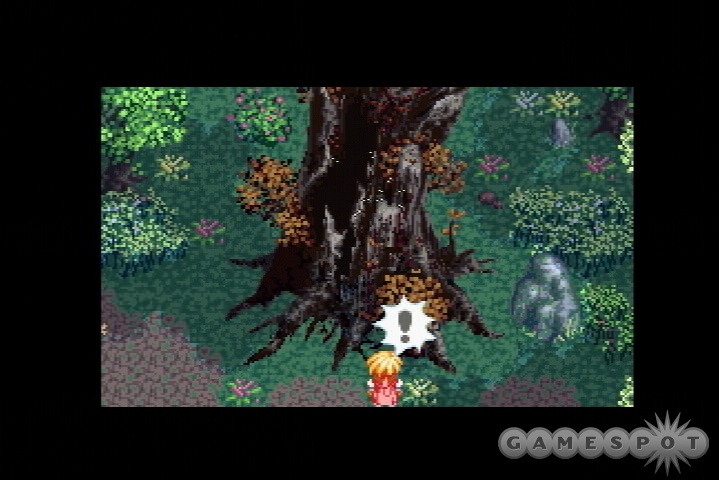Tales of Phantasia Retail Hands-On
We take the Game Boy Advance port of Namco's role-playing classic for a test-drive. The original is 10 years old, so does it still hold up?
Though it won't be in stores for another few weeks, we were fortunate to receive an early copy of Namco's Tales of Phantasia, the Game Boy Advance port of a role-playing game originally released for the Super Famicom. Hot on the heels of the newly released Tales of Legendia for the PlayStation 2, this here's the original installment in what's turned out to be a long-running series. So we tore it open and started playing. Hailed by many RPG fans as one of the classics of the 16-bit era (check out some glowing reviews), Tales of Phantasia once featured a state-of-the-art presentation, a uniquely action-packed combat system, and an engaging story. But is the magic still there?
Even if you were in love with games like Phantasy Star II and Final Fantasy III in the 1990s, you may not remember Tales of Phantasia. That's because the game was never released in North America, though some Japanophiles on these shores were able to play it nonetheless, through various means. On first impression, Tales of Phantasia actually seems pretty generic, right on down to the title. In case you've never heard this one before, the game casts you as a teenage boy who's a fairly talented swordsman. He goes out hunting one day, but not before he's warned to be on the lookout for monsters, which seem to be multiplying at an alarming rate in the nearby wilderness. And some big, important stuff happens--something about a spirit tree and the power of magitech. Of course, as is often the case with these types of games, the details are much more important than the premise. And the premise is good enough to draw you in.

While just running around from a top-down perspective makes Tales of Legendia seem like any typical RPG, the combat system is very different from the turn-based fighting you'd expect from a game of this sort. You've still got hit points and items and things like that to worry about, but the battles unfold in real time and involve you having to actively move about and attack from a side view. You control the game's main character directly, and he'll often have traveling companions helping him dish out damage, heal wounds, and so on.
You'll learn new combat skills as you gain experience, too. Dashing and jumping attacks, thrusts and uppercuts, and special moves are available for mixing it up. So the combat has sort of a fighting-game feel to it, and in fact, it might catch you off guard at first. Or maybe we just suck at games, since we met an ignoble defeat at the hands (tusks?) of the first boss we ran into, a very large and mean wild boar. The game does let you switch to an automatic mode, which puts the main character under artificial intelligence control, but what kind of a coward would settle for that?!

Some aspects of the game's presentation are surprisingly impressive even after all these years. Some nice-looking anime artwork can be found throughout, and there's quite a catchy soundtrack for good measure. But what's particularly noteworthy is all the speech. Again in an apparent nod to fighting games, the characters in Tales of Phantasia are quite chatty, calling out frequently and loudly during battle. It's just cool hearing all that talk coming out of a GBA cartridge.
Tales of Phantasia gives a good first impression, if only because 16-bit-style role-playing games are such a good fit for the Game Boy Advance. Games like this just go to show, in a way, how little the role-playing genre has evolved in the past 10 years--but hey, if the formula still works, why change it? Stay tuned for our full review leading up to the game's release.
Got a news tip or want to contact us directly? Email news@gamespot.com
Join the conversation